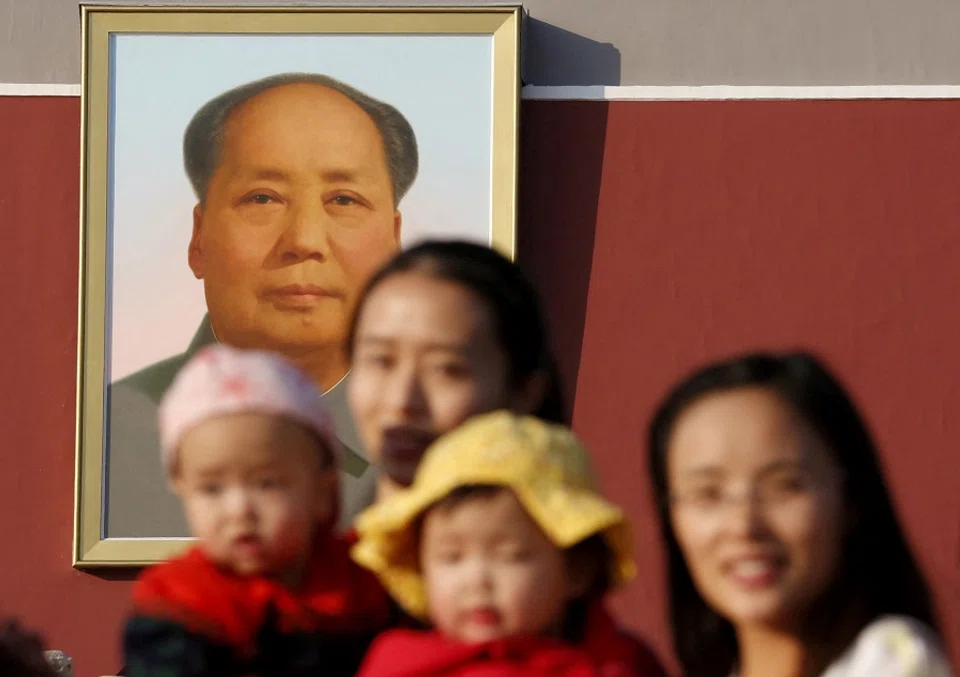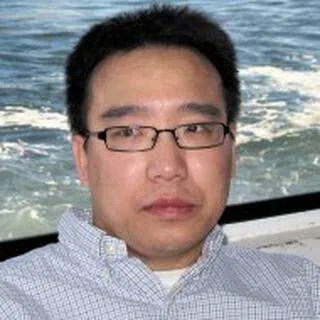From Mao ideals to the American dream: What China's 'sent down youths' sacrificed to chase a better tomorrow
The post-50s Chinese generation of intellectuals who were heavily influenced by Mao had the practice of leaving their children behind as they single-mindedly sought to achieve success abroad. US academic Wu Guo remarks that this generation of people who had been sent down to the rural areas, travelled abroad, and finally gained a foothold and settled down in the US, have always been motivated by a religious zeal for chasing a dream.

It was once common for the older generation of Chinese academics in the US, the so-called laoliu (老留, lit. "old stayer"), to either leave behind their children in China, or temporarily send their US-born child back to China.
This practice is puzzling, as my wife and I were able to raise our child in the US without the help of our elderly parents. Similarly, a Chinese female classmate had also given birth while studying in the US.
A generation of 'left-behind' children
This group of laoliu mainly belong to the post-50s generation (people born in the 1950s). Influenced by the ideologies of the Mao Zedong era, they strove for their career goals and personal achievements above all else and at all costs, even if it meant sacrificing their children or marriage. Their ultimate goal was to go overseas, particularly to the US.
These people projected their Mao era excessive idealism, and the rebirth of that idealism after it had been destroyed in China, onto the US.
When China was just opening up in the 1980s, the zhiqing (知青, urban intellectual youths) who had been "sent down" to China's mountainous areas or farming villages to learn from the workers and farmers, and who later became laoliu in the US, developed an intriguing characteristic. These people projected their Mao era excessive idealism, and the rebirth of that idealism after it had been destroyed in China, onto the US. Mao-era political mania was replaced with a relentless determination to thrive in the US, and to chase that new dream with whatever was left of their youth.
However, it was a painful process because they were already in their 30s by then and had stable jobs as university teachers in China. Going abroad to study brought about great uncertainty, so their minds were set on leaving their young children or newborns in China, or sending them back to their grandparents in China from the US. This created a group of transnational "left-behind children" from highly educated families.

In China, because migrant or skilled workers are employed outside of their hometown, their children are unable to enrol in local schools due to household registration (hukou 户口) restrictions. These children were thus often "left behind" and forced to stay in the rural areas with their grandparents. This resulted in great emotional distress, with significant numbers of self-injury and sexual assault cases, and learning difficulties due to the lack of parental supervision.
In the US, better conditions in terms of free public elementary and secondary education and a variety of affordable childcare options, mean that raising a child here should not be too great of a challenge.
While parenting takes time and energy away from one's doctoral studies and research and each parent is expected to play their part - nurturing the babbling infant through toddlerhood, taking care of them in sickness, and helping them adapt to nursery life - a life without the kids around is essentially shirking one's responsibility.
They sacrificed their children's well-being for their personal achievements and vanity...
Their success above all else
China is not the only country that sends students to the US, and neither is it the only country that has mature students overseas with young children. But the majority of laoliu chose to temporarily leave their children back home or to send them back after having them in the US. They either saw this as a matter of course or explained that there was no other choice.
But their behaviour was in fact selfish and lazy. They sacrificed their children's well-being for their personal achievements and vanity, and also believed that their parents were obliged to take care of their children on their behalf.

Thus, not only did their children face abandonment and neglect, suffering emotional distress, but their parents were also forced to become unpaid babysitters responsible for the upbringing of the young ones.
Professor Qian Yuan, daughter of renowned Chinese academic Qian Zhongshu, was born in 1937 when her parents were studying in Oxford, UK. With Qian Zhongshu's lack of life skills and heavy academic commitments, as well as his wife Yang Jiang's privileged background, I cannot imagine that they were in any better situation to raise a child than the generation of laoliu.
... stories of children left in the care of hometown relatives only became prevalent with the rise of "revolution culture".
However, there is no mention of them or any other older-generation intellectuals who have been through the war sending their children away to relatives, bypassing the difficult newborn phase, creating parent-child separations, and picking them up only when it was no longer troublesome to take care of them. Instead, we only read about Qian Yuan's happy childhood days with her parents.
This is because the earlier generation could not imagine shirking parenthood for any reason. In fact, stories of children left in the care of hometown relatives only became prevalent with the rise of "revolution culture". This is something that the post-50s generation should reflect upon.
Influence of traditional Chinese culture
Notably, China's gender culture and the role of Chinese men are issues that need to be thought hard about.
Many female Chinese students of that generation who went to the US ended up as single mothers when their marriages fall apart. Life is already tough for first-generation immigrants and academics; adding on divorce and single parenthood makes it even more difficult for their far-flung children to have a wholesome and healthy upbringing.
... influenced by traditional Chinese culture, Chinese men find it difficult to fully support their wife's career aspirations and success. Highly educated American men clearly do better in this aspect.

It was also not uncommon for Chinese female academics to give up on marriage when chasing their overseas dream. But often in the end, their traumatising experiences left them bitter, harsh and stubborn.
In general, the marriages of male academics are more stable because their wives are often supportive and willing to make personal sacrifices for the family. In contrast, influenced by traditional Chinese culture, Chinese men find it difficult to fully support their wife's career aspirations and success. Highly educated American men clearly do better in this aspect.
... in a documentary about them, almost all interviewees mentioned the huge impact that The Gadfly, a highly idealistic and heroic yet traumatic novel, had on them when they were young.
Caught between ideals and reality
I am almost a generation younger than the post-50s intellectual youths. When I was in China, the laoliu were my parents' younger friends and my elders. Due to their personal experiences of China's tumultuous modern history, some of them suffered from episodes of psychotic disorders, but there were others who managed to pursue their careers in humanities or politics. I know of a famous "zhiqing author" who is still very successful, but also other zhiqing who found themselves trapped in the rural areas and never made it back to the city.
Many of the notable men and women in overseas Chinese intellectual circles came from the laoliu generation. Interestingly, in a documentary about them, almost all interviewees mentioned the huge impact that The Gadfly, a highly idealistic and heroic yet traumatic novel, had on them when they were young. However, almost no one from my generation is familiar with this novel.
Indeed, the laoliu generation who had been sent down to the rural areas, travelled abroad, and finally gained a foothold and settled down in Western society, is worth studying. Attention should not only be placed on their experience as "sent-down youths" or zhiqing, but also on their struggles and values after they have gotten out of that situation.
But as soon as their American dream began, these people started chasing extreme individualism.

They were caught between ideals and reality. Both the political ideals of the Mao era and the American dream that made them abandon their family require some sort of religious zeal for sacrificing oneself and others. But as soon as their American dream began, these people started chasing extreme individualism.
Some laoliu professors persistently share second-hand news that portray China in a negative light from unknown sources with no regard for their authenticity; some became firm supporters of former US President Donald Trump; others profess that an immigration policy is needed to keep out high-tech international students from India and China so that their children will have more job opportunities.
Many laoliu also became Christians in their pursuit of salvation, with church sermons, Bible readings and discussions a familiar alternative to the Mao era's collective spiritual hypnosis.
Such behaviours arise perhaps due to a heightened individualistic outlook. Dissuading them from such a view is also futile due to their stubborn post-zhiqing "let loose" streak.
Many laoliu also became Christians in their pursuit of salvation, with church sermons, Bible readings and discussions a familiar alternative to the Mao era's collective spiritual hypnosis. They gained a new identity, joined a new community and also found a more powerful way to integrate into American society in the process. Many ethnic Chinese hardcore Trump supporters often come from this group. Perhaps in their world, there is still an inherent need to find someone powerful to rely on and worship as their spiritual pillar.
Fortunately, as time progresses and conditions improve, there are fewer transnational "left-behind" children now. Many of the younger academics I know have either chosen to reunite with their families in China or raise their children overseas themselves. Also, they are far less interested in church and Trump than the older generation.
Related: A Chinese professor in the US: Helping my son find his cultural roots | Price of the American dream: Do immigrants have to forget their past? | New breed of American China experts see China with a colder eye | Chinese economics professor: The New York I saw was not the New York I read about in books | 'Leftover men' in the Chinese countryside and 'leftover women' in Chinese cities | Chinese economics professor: Fathers are not inferior to mothers when it comes to parenting





![[Photos] Fact versus fiction: The portrayal of WWII anti-Japanese martyrs in Taiwan](https://cassette.sphdigital.com.sg/image/thinkchina/3494f8bd481870f7c65b881fd21a3fd733f573f23232376e39c532a2c7593cbc)